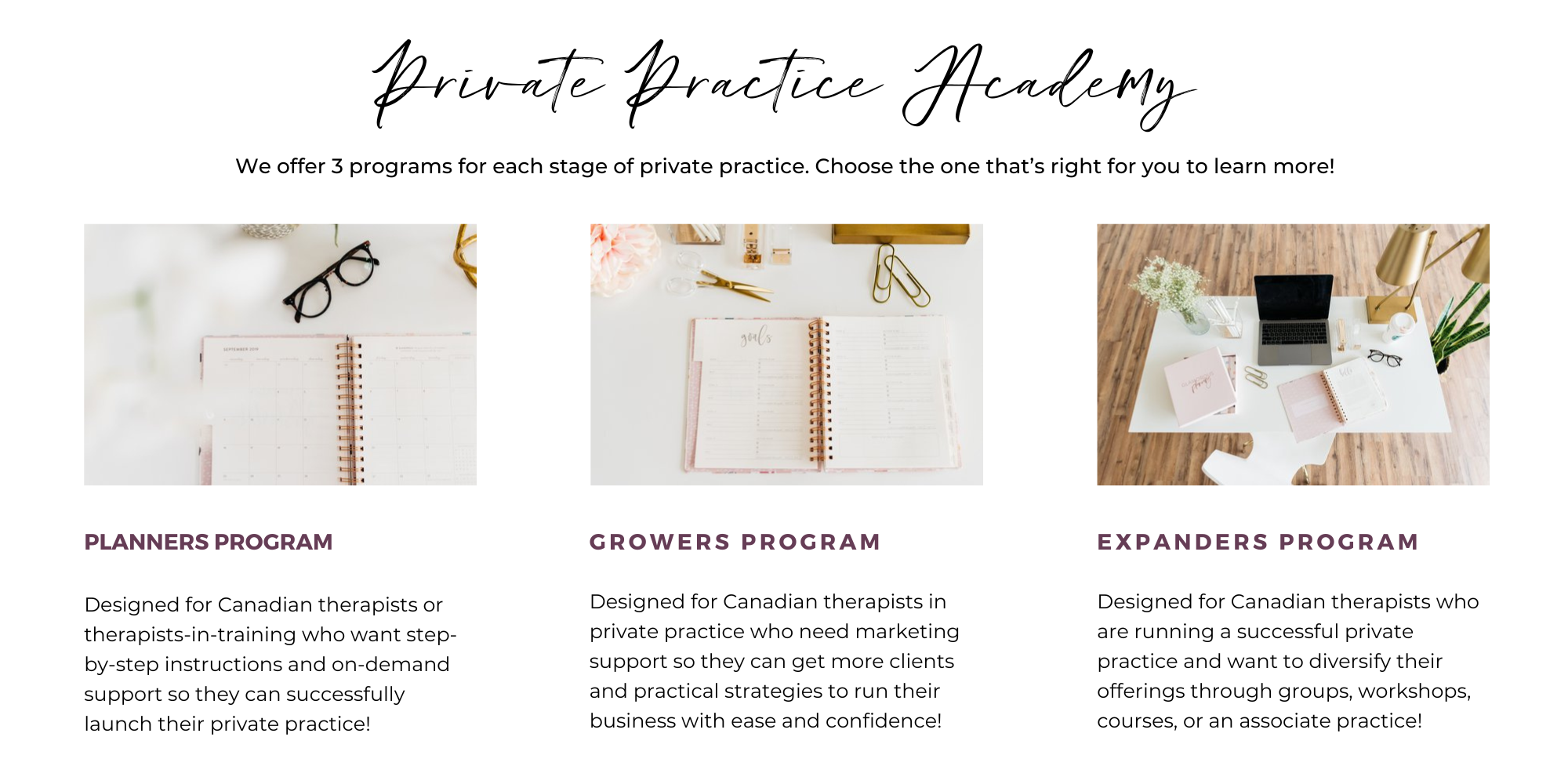How To Track Your Business Expenses
Whether you’re just starting out in private practice, or you’ve been at it for a while, you likely know that it’s a good idea to track your business expenses.
I remember in my first couple of years in private practice I would spend literally days calculating my business expenses in order to file my taxes. I remember the days of going through my spreadsheets at the end of the year and matching it up with paper receipts. I dreaded it and longed for a more efficient system.
What I’ve learned over the years, from colleagues, accountants, and financial advisors, is that it doesn’t really matter how you track your expenses… just so long as you do, and that you do it accurately.
That said, there is no “one way” or “right way” track your expenses. Whatever works for you, and will suffice for your accountant and if you ever get audited, is just fine.
Keeping in mind that there’s no right way to do it, there are a few things that have helped me immensely in cutting down the time I spend on tracking expenses and preparing my taxes that I’d love to share with you.
Have a Separate Chequing Account
Instead of combining all of your personal and business expenses into one account (which will be a nightmare come tax time and if you ever get audited), create a separate chequing account for your business expenses.
Have a Separate Credit Card
In an ideal world, you would be able to make all of your business purchases through your chequing account, but that can be difficult given convenience of online purchases, which are usually made with a credit card.
Get a separate credit card for just your business purchases and use your business chequing account to pay the credit card off each month.
Keep Your Receipts
The main reason for keeping your receipts is if you ever get audited. Both e-receipts and paper receipts are just fine. You can even take a picture of your paper receipts and store it using a system that works for you, or with a software program that allows for that.
If you track your expenses well throughout the year, there is no need to go back through all of your receipts at the end of the year. Just make sure you keep them in case you need them.
Organize Your Monthly Expenses
Although having a separate chequing account and credit card for your business expenses will already go a long way to helping you track your expenses, you will probably want another system that allows you to easily see your purchases at a glance as well as print our create reports on your expenses.
As I mentioned, I used to use a MS Excel spreadsheet that worked just fine. There are also software programs like Waveapps, Quickbooks, and Freshbooks that make life a lot easier too!
Essentially, you’ll want to find a way to track the expenses from your chequing account and credit card, in a way that allows you to know exactly what each expense was, locate the corresponding receipt if necessary, and create reports either manually or automatically.
Categorize Your Expenses
Lastly, and this is more for accounting purposes, it can be helpful to break your monthly expenses down into categories. There aren’t specific categories that you must use, as long as both you and your accountant can make sense of them. Examples include categories for office supplies, professional development, travel, office rent, computer software & hardware, gifts/donations, insurance, licensing/registration fees, etc.
By having your expenses categorized you can easily print reports, and review your business expenses to help better manage your budget.
If you haven’t yet developed a system for tracking your expenses that works for you, it’s well worth the time and effort to do so. If you’re just starting out in private practice, I don’t recommend waiting until your first round of tax filing to do it. The sooner, the better!
If you need support, the best place to get advice is from an accountant or bookkeeper. If you already have those pieces in check, or just need support from a colleague whose been exactly where you are, feel free to check out our Launch Your Practice Program to make sure you are on the right path for your private practice.

